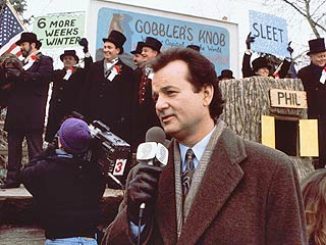Angelo Mozilo, U.S. Representative Charlie Rangel, Tiger Woods, Quarterback Brett Favre, Governor Mark Sanford are just a few who have been involved in ethics-related scandals.

“Why do powerful people with so much to lose push so hard to squeeze out a little more gain for themselves?”
That’s the great question posed by Wall Street Journal reporter Jason Zweig recently. (Oct. 16).
Zweig ties his question to a story from Plato’s Republic, the Ring of Gyges. Upon finding a golden ring with the unique power of invisibility, Gyges uses it to seduce the queen, murder the king and take over. Given the power of invisibility by way of a magic ring, Socrates postulates that “No man would keep his hands off what was not his own when he could safely take what he liked.”
“Power makes people feel both psychologically invincible and psychologically invisible,” says Adam Galinsky, a professor of organizational behavior at Northwestern University’s business school.
Think about it a moment. Possessed of such a power, who among us would remain virtuous? Imagine no moral dilemmas because there would be no consequences for anything we do.
In fact, that was part of the premise of the Bill Murray movie,Groundhog Day, where Murray’s jerk weatherman Phil Connors is forced to spend eternity repeating the same day over and over again. In the beginning, he uses his power to achieve whatever momentary pleasures suit him. And he does it all knowing that when the next morning arrives, he’s back to where he began with no consequences.
However, Murray’s character quickly gets bored and just wants to commit suicide, which of course, he cannnot do because the next morning arrives and he’s back where he started. Eventually, he learns that the only power he has is to contribute in some positive way to make a difference to those closest to him.
This may explain why junk bond king Michael Milken became a philanthropist after his release from prison and Angelo Mozilo seeks charities to help, as well. Both men seem to be trying to restore their reputations by publically helping needy causes.
In speaking with an ethicist who spent years in Washington, D.C., I asked him, “Why would so many smart individuals in our Nation’s capitol; people who have gained both the trust and respect of their constituents think they could possibly get away with unethical behavior?”
I’ll never forget his answer. “Jim, it’s the old maxim, ‘Power corrupts and absolute power corrupts absolutely.’” The atmosphere in Washington, he explained, is so front-loaded with perks and privilege, that those in power are conferred with a special envelope of seeming invincibility.
“Being in a position of power,” Zweig writes, “also may make people feel that they can do no wrong. Dana Carney, a psychologist at Columbia University’s business school, has found that acquiring power makes people more comfortable committing acts they might otherwise be reluctant to commit, like lying or cheating. “
“Having power changes you physiologically,” Carney says, “reducing your body’s internal feedback that tells you which actions are good or bad. Power temporarily intoxicates you.”
This is one reason why it’s ethically sound to surround yourself with friends, family as well as a strong board of directors that is ready, willing and very able to shine a light on the reasons and rationalizations that we may use to do the wrong thing.
As for Washington politicians, maybe they need to learn to “drink” in moderation.
Given the Ring of Gyges, what would you do?
Comments










